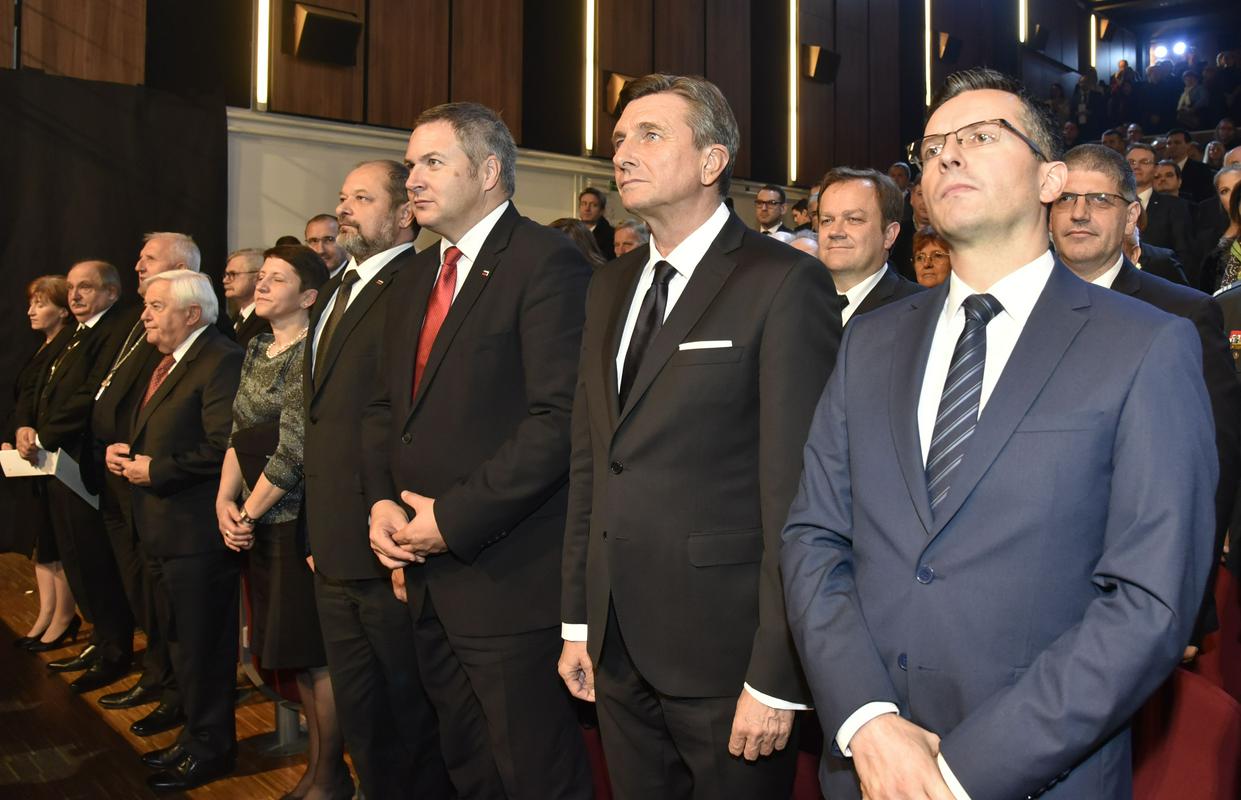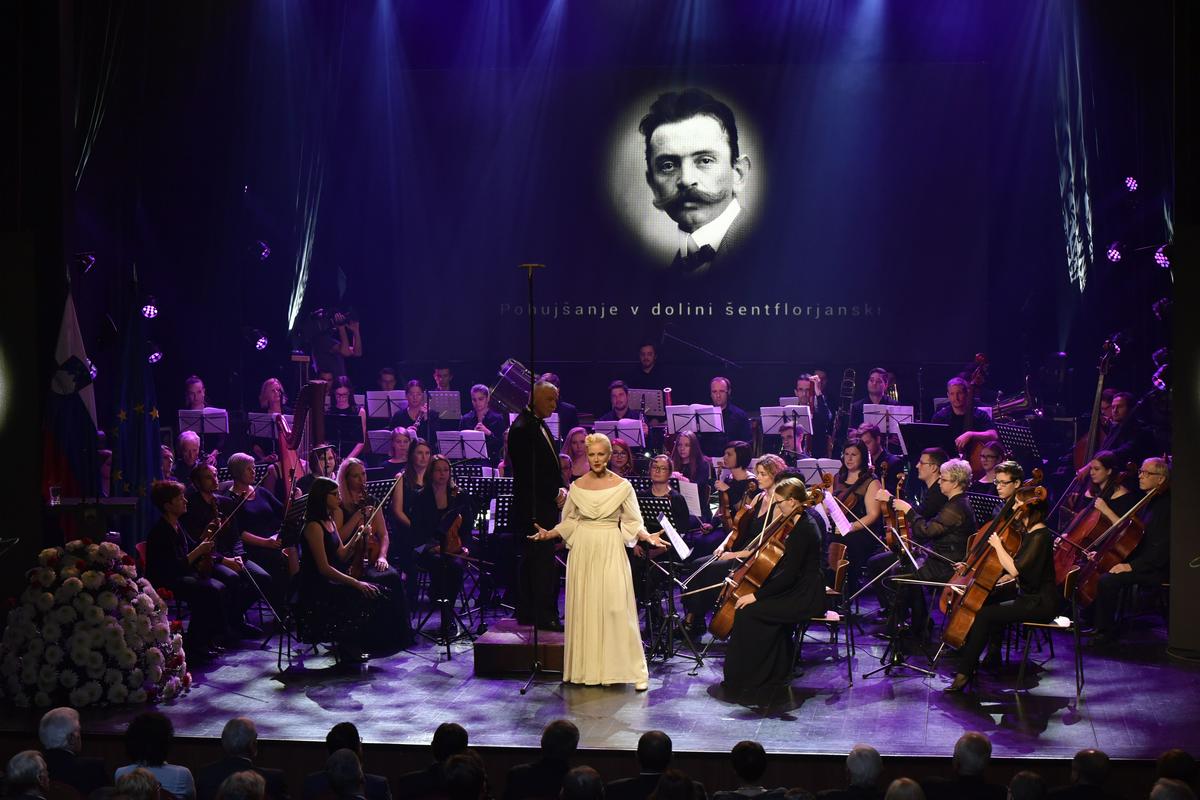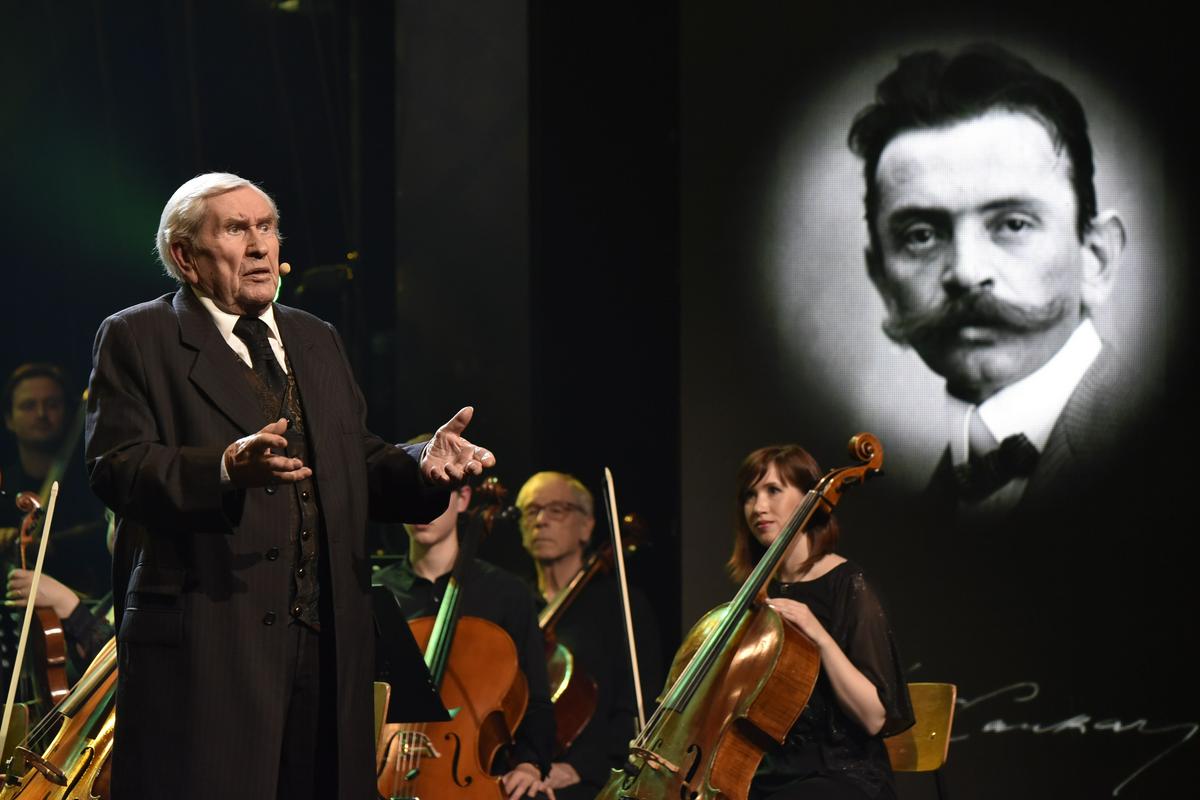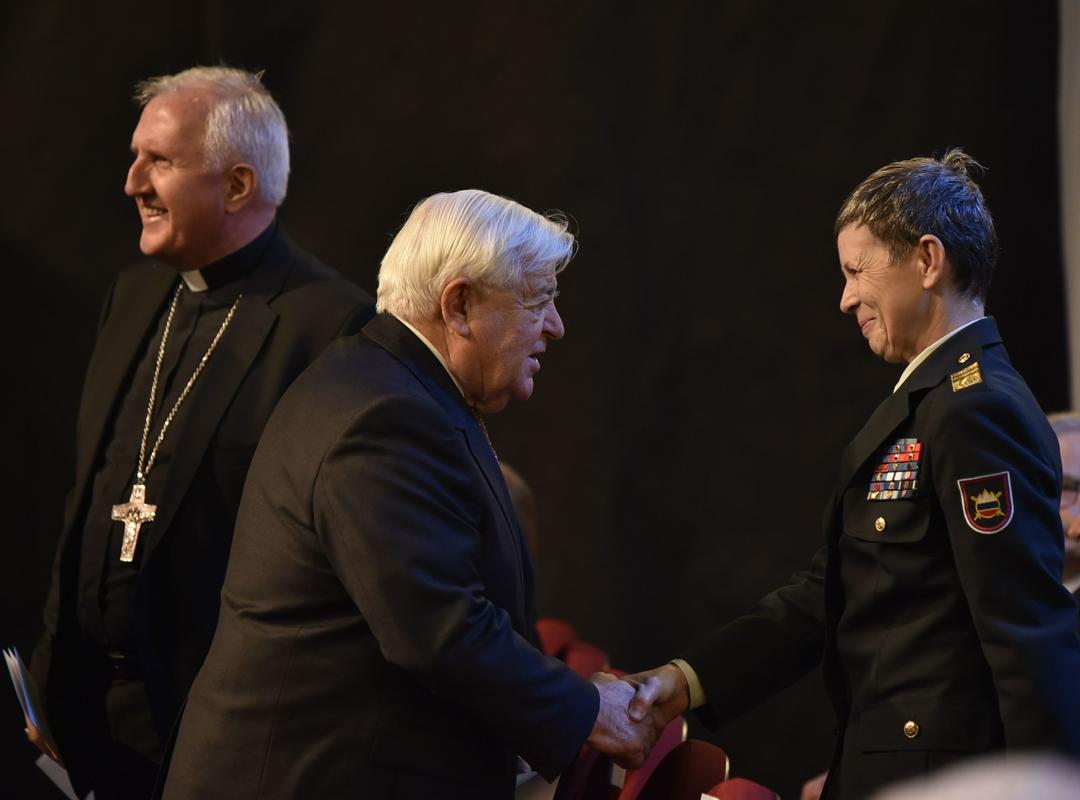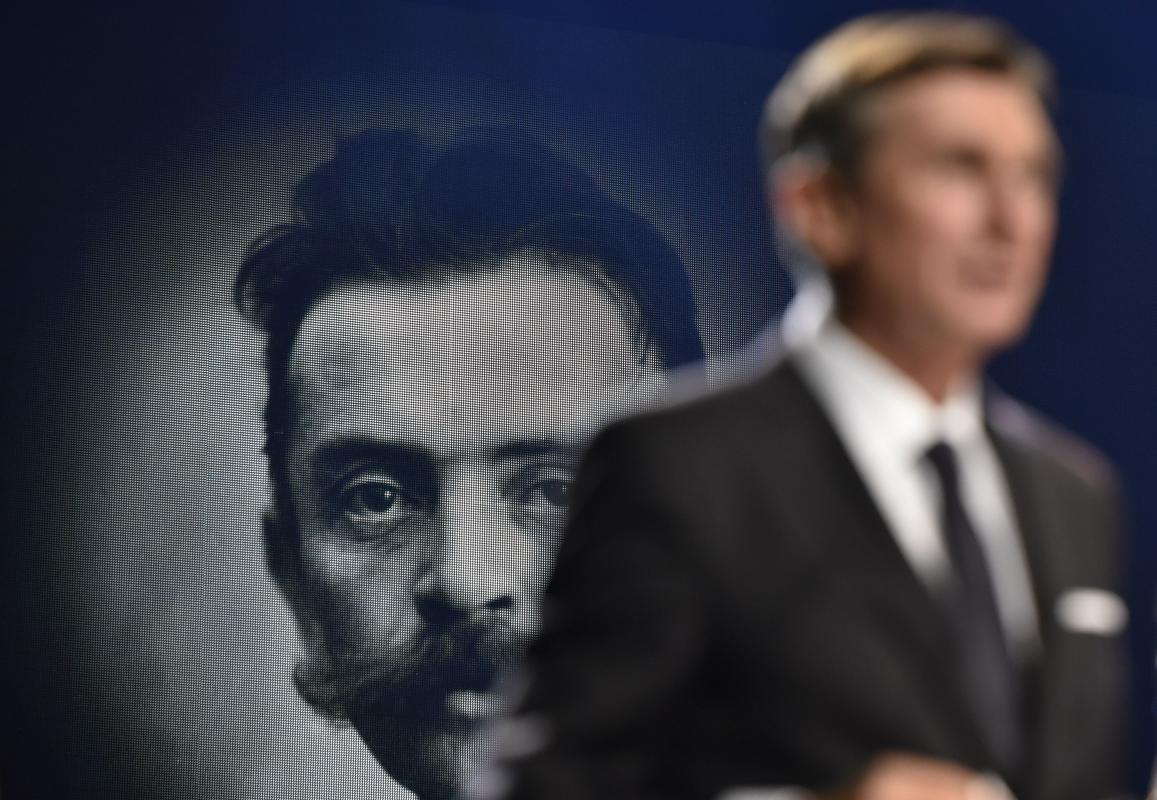
Pahor highlighted that Cankar, despite his criticism and portrayals of an unhappy people and society, was an optimist, noting that his works also call out to today’s modern people.
Pahor compared Cankar to another giant and genius of Sloveneness, Primož Trubar, who was celebrated last year. "Almost half a millennium ago, Trubar laid the foundation for the Slovenian language, and centuries later Cankar developed it most luxuriously at the top of the literary Mt. Parnassus," said the president.
The life mission of Cankar, regarded one of the biggest Slovene writers with a very extensive and varied artistic oeuvre, was his striving to make Slovene’s self-confident, said Pahor. He portrayed the society of his time mercilessly attacking its morale, greed and hypocrisy of all sorts. "In a way, our society is also like that. And taking all that into account, Cankar would still have things to say today. He was merciless towards the authorities. What would he have written about me?" Pahor wondered.
Cankar developed Slovene storytelling to the highest artistic level. Thanks to him, Slovene plays can easily compare to European and world play works. Pahor reminded that Cankar also wrote poems, but that he also allowed his contemporary Oton Zupančič to be the paramount figure in that field, reminded Pahor.
Cankar regarded himself an optimist and believed that writing about human weaknesses would lead to their elimination. He expressed his optimism through satire, tragedies and paradoxes. "Pessimists don’t create such an impressive and comprehensive artistic oeuvre. Pessimists don’t work, they moan about their fate. Cankar portrayed the ordinary man, who hopes and believes," Pahor is convinced.
President Pahor also reminded of Cankar’s political influence, attributing it to his later period. Just as his poet colleagues from the period of Slovene early modernism, he did not like politics in his youth. But according to Pahor, during his last years he "came to realize the legitimacy of all political powers and the need for their cooperation".
Pahor also highlighted Cankar’s appeal that the political future of Slovenes was in the fair competition of all parties which would have to strive for one joint goal – the freedom of the Slovene people as equal among all other European nations. "If anyone, then Cankar for sure at that time, of course, in his own experiential way, thought about Slovenian independence. And if I may exaggerate a little, he lighted the path towards it," Pahor said.




















































